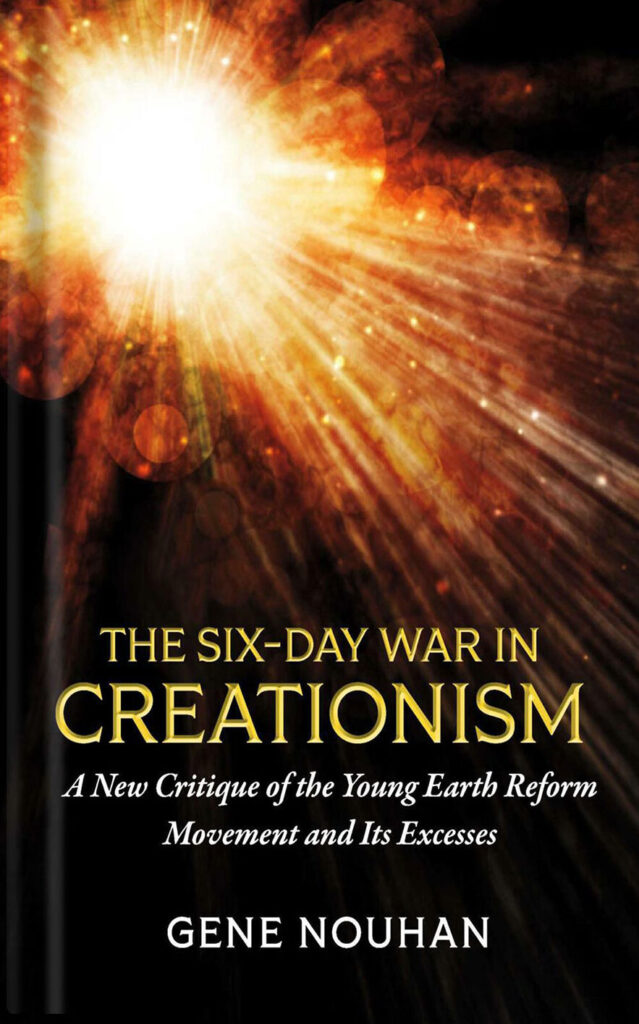Part V of Gene Nouhan’s New Critique of The Young Earth Reform Movement is that creation is ongoing. It contrasts the obsessive focus of the Young Earth Reform Movement’s static view of creation, and the developing New Creation inaugurated by the Incarnation of the Son of God. Part V explores how the New is replacing the Old. This fascinating exploration is masterfully presented in the book, “The Six-Day War in Creationism: A New Critique of The Young Earth Reform Movement.”
The Young Earth Reform Movement is more than young earth ideas. The reformists among them intend to establish a “New Reformation” on all Christianity and the culture by literalizing Genesis. But the actual perspective in the Bible paints a more substantial picture. Rather than viewing the first creation as an end, the Bible presents it as a beginning. There is a developing story hovering over the creation account in Genesis that unfolds throughout the scriptures and culminates in the coming of the Son of God.
The Incarnation is a New Creation – a union of God and Man in one person. The creation is not a static state but a means to the greater end of the ultimate Union of Divinity and all Humanity that has been seeded by Christ. It is inexplicable how Fundamentalists obsess over an Old Covenant, Late Bronze Age cosmology in Genesis 1 while neglecting the Christian cosmology of John 1 that says:
“In the beginning was the Word, and the Word was with God, and the Word was God. He was in the beginning with God. All things came into being through him…in him was life, and the life was the light of all people. The light shines in the darkness, and the darkness did not apprehend it…The true light, was coming into the world… to all who received him, who believed in his name, he gave power to become children of God, who were born, not of blood or of the will of the flesh or of the will of man, but of God… And the Word became flesh and lived among us.”
Nouhan contends that the YE Reform Movement’s excessive focus on six literal days and the age of the earth has caused them to submerge the theological points: God’s infinite attributes, and his ultimate purposes of union with God that the 7th Day of creation offers. By making the age of the earth a central issue in their evangelism, YE Reformists have lost sight of Christianity’s core message and mission.
The author Gene Nouhan suggests that reformists have become preoccupied with the temporal details of creation, such as the length of the creation days and the age of the earth, at the expense of its eternal significance. This narrow focus, Nouhan argues, is at odds with the biblical perspective, which sees the creation as a backdrop for God’s greater plan of the union of Heaven and Earth in Christ, and not that the Genesis creation account is an end in itself.
Nouhan’s critique of the YE Movement highlights a fundamental difference in the understanding of God’s purpose in creating the world. While the YE Movement sees the creation as primarily about establishing a perfect, sinless paradise, the biblical view presents the world’s unfinished state showing a brokenness that needs the final stages of redemption in which God’s eternal plan is revealed and accomplished through the life, death, and resurrection of Christ.
With relentless focus on the supremacy of Christ, Nouhan encourages readers to shift from superficial reading of creation to the broader, eternal purposes of God that unfolds. This is crucial for reclaiming Christianity’s central mission and message, which is not about defending a particular view of the age of the earth but about proclaiming the Good News of union with God through Jesus Christ that all Young Earthers should gladly accept.

